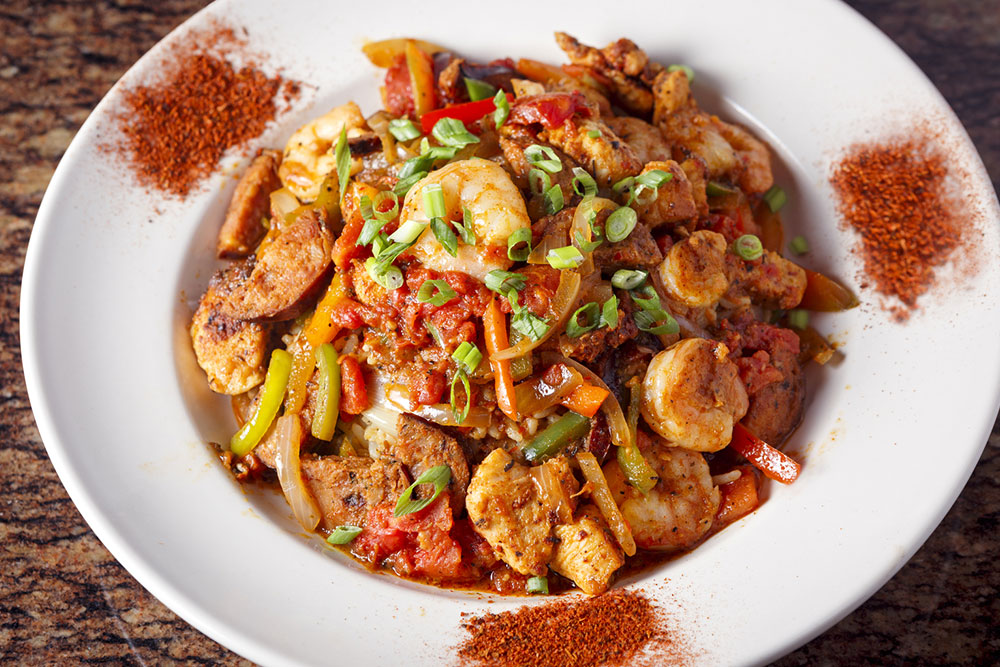11 foods to avoid when dealing with herpes

Herpes simplex is a virus that causes skin infections in different body parts, such as the genital region, buttocks, thighs, and anus. The condition is characterized by itching, blisters, burning, tingling, and painful sores. However, these symptoms can vary based on the location. For example, oral herpes causes blisters and cold sores around the mouth, whereas genital herpes may cause painful urination. In addition to treatment, avoiding certain foods can help in managing the infection:
1. Spicy foods
Herpes often leads to the development of sores and blisters, which can worsen with the intake of spicy foods. So, when dealing with such an infection, one should avoid spicy foods like cajun shrimp and buffalo wings, as well as certain varieties of spicy chilies, and consider replacing them with milder seasoning.
2. Pumpkin seeds
Although highly nutritious, pumpkin seeds contain arginine, an amino acid that has been linked to the spread of herpes. This is primarily because arginine promotes speedy growth, which accelerates the reproduction of viruses like HSV-1 and HSV-2, which are responsible for the onset of this condition. So, one should steer clear of pumpkin seeds to prevent the spread of herpes.
3. Citrus fruits
Fruits such as oranges, grapefruit, and lemons are rich sources of vitamin C and other nutrients. However, owing to their high acid content, they are likely to irritate the cold sores and blisters caused by herpes. So, it is a good idea for those with the infection to limit their intake of citrus fruits, replacing them with other vitamin C-rich foods like cruciferous vegetables, leafy greens, and bell peppers.
4. Meat
Meats in all their forms contain high levels of arginine, with white meat being the richest source of this amino acid. So, it is best to limit the intake of meats like turkey and chicken breast, cooked beef, and other red meat sources. However, as meat is an excellent protein source, one should replace it with other protein-rich foods like eggs and fatty fish.
5. Whole grains
Whole grains help lower cholesterol levels and enhance digestion. But they also contain high levels of arginine and should be avoided by those dealing with herpes. So, some foods to avoid here would be oats, brown rice, corn, and buckwheat. One may substitute these grains with rice bran, canned hominy, cooked and pearled barley, and yellow cornmeal, which have relatively less arginine content.
6. Dairy products
Dairy products may trigger or aggravate mouth sores. In addition, all dairy products, including cheese, yogurt, and milk, are rich in arginine and may worsen herpes symptoms.
7. Processed foods
Processed foods like bacon and hotdogs contain sodium and nitrates in large quantities and can have damaging effects on the skin. So, it can interfere with symptom management among those with herpes, who typically have skin infections, cold sores, and blisters. Replacing ultra-processed foods with nutrient-rich meals containing healthy carbs and fats, proteins, vitamins, and minerals can help limit cravings and keep one full longer.
8. Walnuts
Walnuts contain high levels of arginine, which can impede recovery among those with herpes. Dried walnuts contain approximately 4.5 grams of arginine per cup. Similarly, nuts like almonds and pine nuts are also rich in this amino acid and should be avoided when dealing with herpes infection.
9. Sugary foods
In general, high blood sugar is known to slow down the healing process, particularly when one is dealing with wounds. As herpes involves the development of blisters and sores on the skin, a meal plan high in sugar may cause them to heal slowly, reducing the effectiveness of ongoing herpes treatment. So, those with herpes should steer clear of sugary foods and replace them with natural sugar sources like fruits low in arginine.
10. Legumes
Legumes are excellent sources of protein, fiber, and essential nutrients. Unfortunately, legumes like soybeans, chickpeas, and raw peanuts contain high levels of arginine. However, lentils are also rich in lysine, which is shown to reduce the outbreaks of genital herpes and cold sores. So, one should limit their consumption of legumes, having them in moderation.
11. Seaweed
Dried seaweed contains about 4.6 grams of arginine and may aggravate herpes symptoms, promoting virus growth and replication.
Management tips
In addition to undergoing treatment and making better food choices, here are a few tips to deal with the symptoms and curb the spread of the virus:
Avoid sharing personal care items: When dealing with herpes, it is important to avoid sharing soap bars, toothbrushes, and lip balms, which may cause the spread of herpes infection.
Maintain personal hygiene: Excessive accumulation of sweat and dust particles on the skin may aggravate herpes symptoms like itching and sore breakouts. So, adequate hygiene and skincare practices are a must while healing from herpes.
Apply aloe vera gel: Aloe vera gel has a cooling effect on the skin and helps speed up wound healing. So, those with herpes infection should apply aloe vera gel on the affected areas.
Stay hydrated: Adequate hydration is essential for healing herpes-induced sores and blisters. Moreover, having enough water helps prevent a burning sensation one may experience while urinating. So, one should have plenty of water and other fluids while recovering from an infection.







